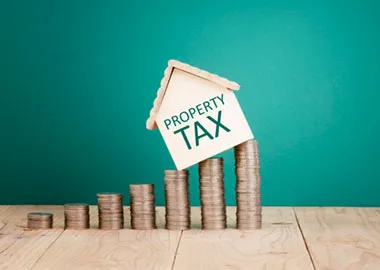How to Determine the Rental Value of Your House
By lodha
October 15, 2025

Determining the rental value of your house is a crucial step for property owners looking to lease out their homes. Whether you are new to renting or looking to re-assess the value of your property, understanding how rental values are determined will help you set a competitive and realistic price. The real estate market in India is highly dynamic, and setting the right rental value can make a significant difference in attracting reliable tenants and maximising your investment returns.
What is Rental Value?
The rental value refers to the amount of money a property can generate as rent per month or year. The prevailing value is the current rate at which similar properties in the area are being leased, and it serves as a baseline for determining the appropriate rent for your property. Factors such as location, amenities, demand, and economic conditions contribute to this value, ensuring that the rent you charge aligns with market trends and tenant expectations.
Factors Determining the Rental Value of Your Home
Several factors influence the rental value of a property. While each home is unique, understanding these variables will help you calculate a fair and competitive rental price for your house.
1. Location
One of the most significant determinants of rental value is the location of the property. Homes situated in prime areas such as central business districts, areas with good infrastructure, and close proximity to schools, hospitals, and commercial hubs generally command higher rents. House rental prices can vary drastically depending on whether the property is located in a metropolitan city like Mumbai or Delhi, or a smaller city or town.
2. Size of the Property
The overall square footage of the property plays a major role in determining its rental value. Larger properties or those with multiple bedrooms, expansive gardens, or more floors tend to command a higher rent. Buyers and renters generally pay more for homes with larger living spaces or those that offer more room for family expansion.
3. Condition of the Property
The condition of the property is essential in determining how much you can charge in rent. Newly renovated or well-maintained homes with modern finishes and minimal wear and tear can attract a higher rent. In contrast, a property that is outdated or requires significant repairs will likely require a lower rental price to remain competitive in the market.
4. Amenities and Facilities
Properties that offer modern amenities such as a gym, swimming pool, parking facilities, and 24/7 security tend to have higher rental values. The inclusion of essential facilities like air conditioning, heating, or high-speed internet access can also increase the property’s appeal and, by extension, its rental value.
5. Supply and Demand
The real estate market in India is heavily influenced by supply and demand dynamics. In areas where rental demand exceeds supply, property owners can command higher rental values. Conversely, in locations with more available rental properties than tenants, you may need to reduce your asking price to attract tenants.
6. Market Trends
It is important to consider the prevailing trends in the real estate market in India. Rental values can fluctuate due to market conditions, seasonal factors, or changes in local economic conditions. Staying informed about trends in your locality, such as new developments or infrastructure projects, can help you adjust your rental pricing accordingly.
7. Tenant Profile
The type of tenants you are targeting can also influence the rental value. For instance, properties targeting corporate professionals or expatriates may command higher rents due to the premium nature of these tenants, whereas rental values may be lower in neighbourhoods where families or students are more likely to rent.
How to Calculate the Rental Value of Your Property?
To calculate the rental value, start by researching comparable properties in your locality. These properties should be similar in size, age, condition, and amenities. By examining the asking rent for these homes, you can get a sense of the prevailing value in your area.
Consider the following steps to help you determine an appropriate rental price for your property:
1. Research Similar Properties
Check rental listings in your area to find homes with comparable characteristics. You can use online platforms, local listings, or ask real estate agents for insights.
2. Assess Your Property’s Features
Evaluate your property’s features, including its size, amenities, and overall condition. These factors will allow you to adjust your rent higher or lower than the market average.
3. Seek Expert Guidance
Consult a real estate agent or property manager for a professional opinion on your rental price. Their knowledge of the real estate market in India can provide valuable insights and help you make a competitive, informed decision.
The Lodha Advantage
When determining the rental value of your home, partnering with a trusted developer like Lodha ensures your investment is well-positioned. Lodha’s portfolio of real estate companies in India includes luxury properties that are in high demand among premium tenants, from residential apartments in South Mumbai to villas in scenic locales. Whether you're leasing out a property or planning to invest in NRI properties, Lodha’s expertise can guide you through the complexities of house rental prices and help you maximise your returns.
With Lodha, you gain access to an expansive network of tenants, a reputation for quality, and real-time insights into the most desirable locations and property features, ensuring your home is competitively priced and well-maintained.
In conclusion, determining the rental value of your house requires a comprehensive understanding of the local market, property features, and prevailing conditions. By factoring in key elements such as location, condition, and amenities, you can ensure that your property is priced appropriately for the current market dynamics. Partnering with experts in real estate companies in India, like Lodha, ensures that your rental investment is both profitable and hassle-free.
You may also like
Most common queries
1. What if I set the rent too high or too low?
Setting the rent too high can make it difficult to attract tenants, while pricing it too low can reduce your return on investment. It's important to find a balance based on market trends and property conditions.
2. How often should I review the rental price?
Review your rental price annually or whenever there are significant changes in the market, such as the completion of new developments or infrastructure projects.
3. Can I increase the rent during a lease?
Rental increases can only be made according to the terms of the lease agreement and must comply with local rent control laws.



 Enquire
Enquire
 Call
Call
 chat
chat
 Search
Search





